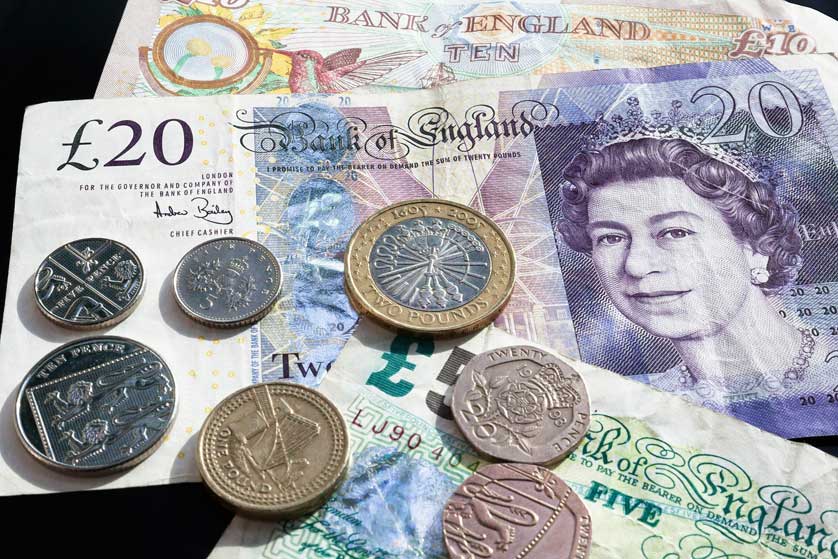Ten Suggestions To Help You Understand The Current Market Trends Regarding Currency Rates And Exchange Rates
Anyone involved in business, travel or investment management should be aware of market trends. Market trends refer to the general direction in which prices or economic indicators change over a certain period. Market trends are influenced by a variety of factors including geopolitical issues as well as economic data, and consumer behaviour. For travelers, being aware of market trends could help improve currency exchanges and budgeting. Staying informed of trends can help businesses make strategic decisions. Market trends can help investors make informed choices regarding the sale or purchase of assets. Here are the top 10 detailed strategies to track and use the market's trends to improve your financial position.
1. Be informed about economic indicators
The market's trends can be greatly influenced by economic indicators like the GDP growth rate, inflation rates and consumer confidence. Check these indicators regularly to understand the condition of the economy. Sites such as the Bureau of Economic Analysis and the Federal Reserve can provide you with important information that will help you to interpret the market's conditions.
2. Utilize Financial News Sources
Financial news sources that are reliable such as Bloomberg, Reuters, and CNBC, offer up-to-date information about market trends and events impacting various sectors. Subscribe to newsletters or monitor market analysts through social media in order to keep up-to-date with developments in the market, economic forecasts, and expert opinion. This information can help you with your investment, business or travel strategies.
3. Leverage Online Analytical Tools
– Analytical tools and platforms like TradingView, MarketWatch, and Yahoo Finance provide historical data, charts, and technical analysis to aid you in assessing market trends. These tools will assist you in identifying patterns, trends in the market, and potential pivot points. They will also allow you to make informed decisions about your investment, business travel plans, or managing your investments.
4. Understanding the seasonal changes
A lot of markets are impacted by seasonal fluctuations which affect prices and demand. The tourism industry may experience a peak in certain times of the year. This can affect the exchange rate of currencies and demand. Understanding these seasonal fluctuations will help you to plan your travel budget better or alter your business plans to align with consumer behavior. For instance, if recognize that exchange rates are more favorable during off-peak seasons it is possible to time your currency exchanges accordingly.
5. Monitor Geopolitical Changes
Political developments, such as trade agreements, elections and conflict, can have profound impact on market trends and the worth of currencies. Be aware of global events that may influence the region you're going to, doing business in or investing in. For example, a change in the policy of a government in a country may lead to currency fluctuations that could impact your budget for travel or return on investment.
6. Social Media is a great way to get real-time information
Twitter and LinkedIn, for example, can provide you with real-time information about the latest economic and financial news. Follow leading economists and analysts as well as leaders in the industry to get an understanding of market trends. It is also possible to exchange information with the relevant online communities and keep up-to-date on market developments.
7. Consider Trends in Historical Data
Historical data can provide valuable information on how markets have reacted in the past to similar conditions. By analyzing historical data, you can discern patterns that could be used to make better predictions for future movements. This method is especially useful for investors who want to learn about long-term trends or companies that are making pricing strategies based on past consumer behaviour.
8. Use Trend Analysis to inform your Strategy
Trend analysis is the process of analyzing the historical data on prices to find patterns and to make predictions regarding future trends. It is essential to keep track of the trends in currencies for travellers to be aware of the ideal time to exchange currencies. Trend analysis can be useful for businesses to develop pricing and marketing campaigns. Investors can identify the best entry and exit locations to maximize their profits by using trend analysis.
9. Diversify your sources of information
One source of information can hinder your understanding of the market. Diversify your sources by consulting various financial news outlets, economic reports, and online tools for analysis. By gaining insights from multiple angles, you will be able to gain an extensive understanding of market conditions. This will help you to make more informed decisions.
10. Consult Financial Advisors
If you don't know what to make of trends in the market or how they could impact your financial goals you should consult a qualified financial advisor. These experts offer individualized advice to suit your situation as well as help you devise strategies to navigate the market. For those who are looking for budgeting advice, a business seeking to improve its operations, or a person who manages an investment portfolio, their expertise will be valuable.
These tips will help you navigate the complexities of business, travel and investment management more effectively. Understanding trends in the market will allow you to make smarter financial decisions that are in line with your business or personal goals, and ultimately improve your overall financial strategy and the results. Have a look at the most popular USD to CAD blog for site info including dollar to php, thb to usd, 1 usd in rupees, usd to inr, convert euro to usd, aed to usd, dollar to yen, rmb to dollar, usd to inr, rs to usd and more.

Top 10 Tips On Rates Of Exchange And Currency Conversion For Destination Currencies
Understanding destination currencies is critical for anyone planning to travel abroad, conducting international business, managing investment abroad or doing international transactions. The currency you are using is the currency of the country you are traveling to, or with whom you've entered into an engaged. It can impact your financial decision. Changes in the exchange rate and conversion fee as well as the economic climate in general can influence how much you travel or how profitable business deals and investments are. When you know about the country's currency and the implications for it, you can optimize your finances and make educated choices. These are the top 10 suggestions for managing destination currencies when it comes to your financial goals.
1. Before traveling, it is crucial to know the currency of the country.
Study local currencies before visiting another country. Understanding the local currency's value in relation to your own is important. Also, familiarize yourself with its denominations. This will allow you to manage your budget more effectively and help you avoid paying too much for goods and services. Websites like XE.com permit you to view the current exchange rate as well as historical data. This lets you estimate what your money is worth in foreign currency.
2. Be aware of the exchange rate before your departure
– Exchange rates can change significantly as time passes, and keeping track of the changes will help you determine the best moment to exchange your currency. Currency tracking tools and apps can be utilized to create notifications when rates are in a favorable position. If you notice signs that the currency is declining, you should consider changing your currency earlier to get the most the power to purchase on your trip.
3. Currency Conversion Costs: What Should You Consider?
Currency conversion fees vary greatly among banks, currency services and ATMs. Be mindful of the fees that are associated with changing your currency to the currency you'll use, as they can add to your budget. Check rates offered by various providers. Consider making use of online platforms that offer lower costs as well as competitive exchange rates and low conversion rates.
4. Utilize the local currency for transactions
When you pay for purchases in foreign countries, it is always better to pay in local currency rather than the one you home currency. Using your home currency often is a the dynamic conversion of currency (DCC) that typically comes with poor exchange rates and high fees. By paying in local currency, you are able to get lower rates and save on charges. This can allow you to increase your savings further.
5. Prepare your cash needs in advance
Although most countries accept debit and credit cards, it's essential to have some cash on hand for small purchases such as tips or locations that do not accept cards. If you plan to use ATMs overseas look into the charges and withdrawal limits. You might want to withdraw large amounts of cash in one go to reduce transaction costs. It is essential to keep local currency in your wallet when traveling. This will enhance your travel experience and reduce inconveniences.
6. Learn about Local Payment Preferences
Different countries might have different payment preferences. Some places are dominated by cash, while others rely heavily on credit cards and digital payments. Examine the payment habits in your area to learn the accepted methods of payment. This will help you plan payment methods and make sure you have the tools you need to make transactions smoothly.
7. Currency risks to businesses
If you intend to do business in a foreign country, take into consideration the risk of currency fluctuations that can result from changes in exchange rates. The sudden fluctuations in the value of the currency destination could impact profit margins as well in the overall financial performance. Hedging strategies, like forward contracts, to guard against fluctuations in currency and to lock in rates for future transactions.
8. Be aware of your spending
To stay within your the budget while traveling, tracking your expenses is vital. Make use of budgeting applications or keep a meticulous list of your expenses to determine how much you are spending in local currency. You'll be able monitor how much you spend in the local currency and prevent spending too much.
9. Financial Regulations – Become educated
Different countries have different laws regarding exchange of currency, cash transactions, reporting requirements and reporting requirements. Make sure to be aware prior to traveling or engaging in any type of business, with these rules. You may find that some countries impose restrictions on how much cash you can take in and out of the country, or even require that you declare purchases of a significant amount. Understanding these rules will help you navigate through them.
10. Consult a specialist in currency for Investments
If you're watching investments in foreign markets, consider consulting with currency experts or financial advisors that specialize in international investments. They can help you comprehend the effects of fluctuations in currencies on your portfolio of investments, and devise strategies to control risk associated with currency. Their knowledge can be valuable in understanding the complexity of the currencies you are destined to and maximizing your financial outcomes.
These detailed tips will help you navigate the currency of your destination to allow you to travel, conduct business or monitor your investments. Knowing the implications of currency for your destination will allow you to make better financial choices that align with the goals of your company and your personal life. Check out the recommended prazskamincovna.sk/eurhuf currency for website advice including usd to cad, usd to mexican peso, rmb to usd, yen to dollar, us dollar to colombian peso, thb to usd, cdn to usd, chf to usd, us dollar to rmb, usd to pakistani rupee and more.
